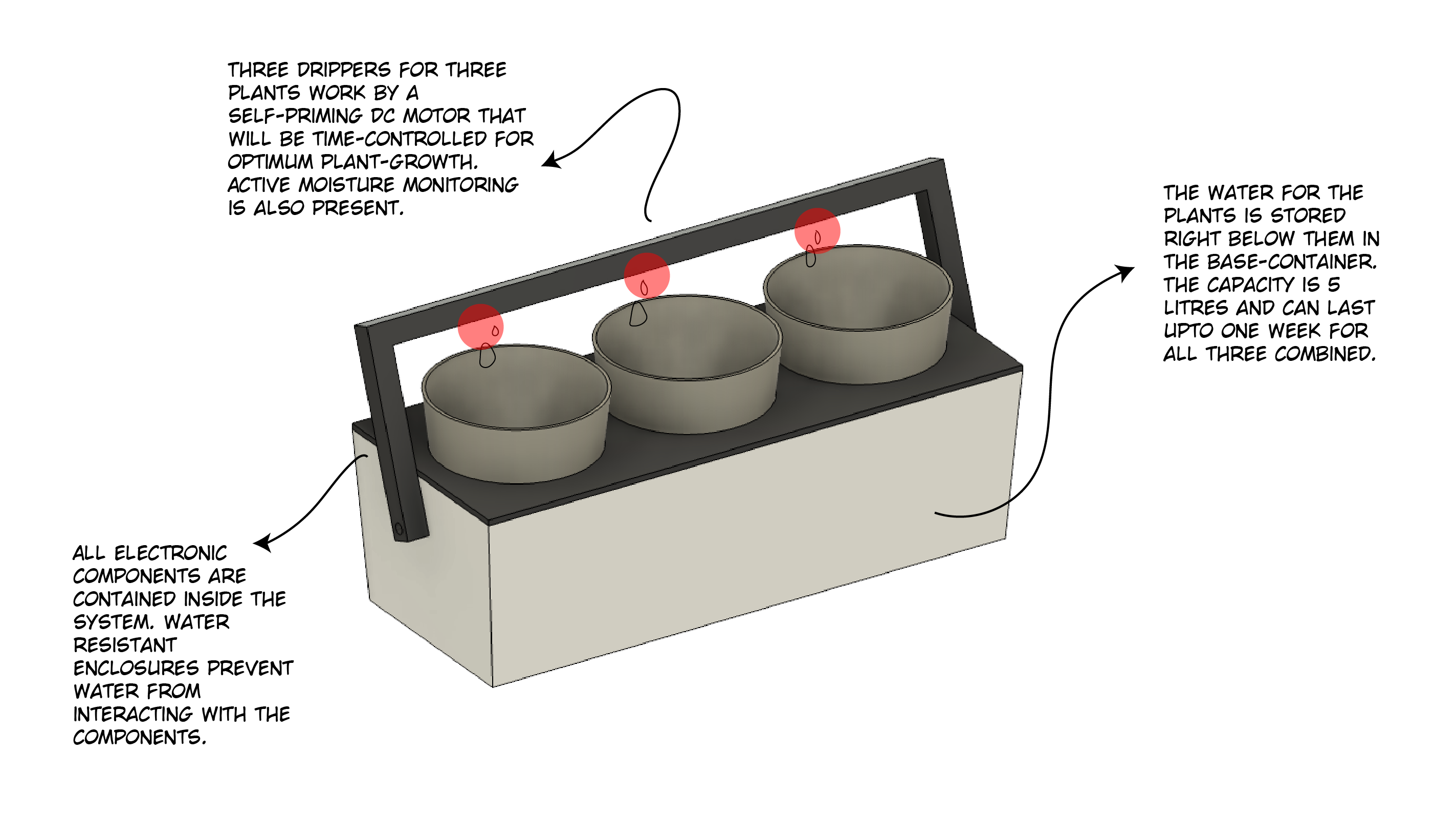Classroom Project: IoT Systems
Automatic IoT Planter
A planter that relays back information on the moisture levels, waters automatically and gives reminders of all things plant-related
Execution
Working Prototype with NodeMCU
Project Duration
1 month

The orignal code written to test run the system. This doesn't have any IoT
// Date and time functions using a DS3231 RTC connected via I2C and Wire lib
#include <Wire.h>
#include "RTClib.h"
RTC_DS3231 rtc;
// Automatic Watering System using NodeMCU, Moisture Sensor
// constants won't change. They're used here to set pin numbers:
const int waterStateButton = 12; // the number of the waterState Flush switch pin
const int ledPin = LED_BUILTIN; // the number of the LED pin
const int motorPin = 11;
// variables will change:
int waterState = 0; // variable for reading the pushbutton status
int currentHour, initialHour; // Sets the value of current hour
int moistureSensorValue;
void setup() {
DateTime now = rtc.now();
initialHour = now.hour();
pinMode(motorPin, OUTPUT);
pinMode(A0, INPUT);
Serial.begin(9600);
if (! rtc.begin()) {
Serial.println("Couldn't find RTC");
while (1);
}
if (rtc.lostPower()) {
Serial.println("RTC lost power, lets set the time!");
// following line sets the RTC to the date & time this sketch was compiled
rtc.adjust(DateTime(F(__DATE__), F(__TIME__)));
// This line sets the RTC with an explicit date & time, for example to set
// January 21, 2014 at 3am you would call:
// rtc.adjust(DateTime(2014, 1, 21, 3, 0, 0));
}
}
void loop() {
digitalWrite(motorPin,HIGH);
DateTime now = rtc.now();
Serial.println(now.hour());
if(currentHour!=now.hour() || currentHour==initialHour){
if(currentHour==initialHour){
initialHour--;
Serial.println("Minus Initial Value of hour");
Serial.println(initialHour);
}
// Check Moisture
Serial.println("Moisture");
moistureSensorValue = analogRead(A0);
Serial.println(moistureSensorValue);
moistureSensorValue = 700;
if(moistureSensorValue>600){
digitalWrite(motorPin,LOW);
delay(10000);
digitalWrite(motorPin,HIGH);
}
// Check Water level
Serial.println(waterState);
if (waterState == HIGH) {
Serial.println("No Water! Please fill");
}
currentHour = now.hour();;
}
delay(1000); // 1 Second
// delay(36000); // Hour
}